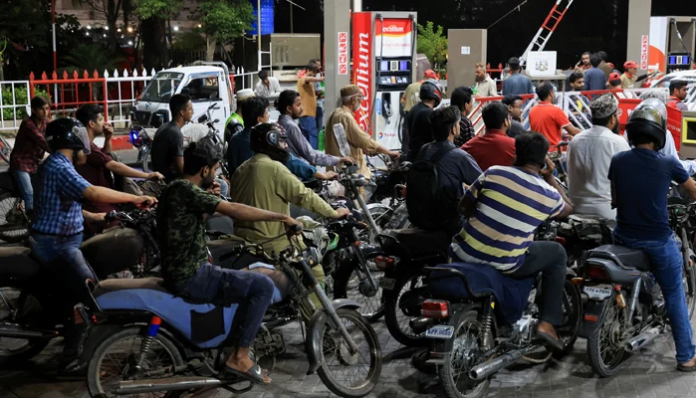KARACHI, NOV 1 (DNA):Opposition parties have severely criticised the federal government for increasing the price of petroleum commodities, noting that it would further increase the burden on the inflation-hit masses.
Contrary to market expectations, the government raised the petrol price by Rs1.35 per litre on Thursday night, effective until November 15.
As per the Finance Division’s notice, petrol now costs Rs248.38 per litre, up from Rs247.03. High-speed diesel (HSD) increased by Rs3.85, now priced at Rs255.14 per litre from Rs251.29.
However, kerosene oil saw a reduction of Rs1.48, bringing the price to Rs161.54, while light diesel oil dropped by Rs2.61 to Rs147.51 per litre.
In a statement on X, the Pakistan Tehreek-e-Insaf (PTI) said that in advertisements, the government claims that all is well, but on the other hand, it keeps on increasing prices of basic necessities.
“By increasing the prices of basic necessities significantly, the government is exploiting the masses already stuck in quicksand,” the party said.
Jamaat-e-Islami Emir Hafiz Naeem-ur-Rehman expressed strong disapproval over the recent increase in petroleum prices, calling it “shameful.”
The top JI leader, in a statement, criticised the government, claiming it has shown no willingness to provide relief to either the general public or the industrial sector.
Hafiz Naeem highlighted that while international prices are decreasing, Pakistan is witnessing price hikes.
He further urged the government not to “take out its frustration over PIA’s privatisation failures” on the public through price increases.
Petrol is primarily used in private transportation, including small vehicles, rickshaws, and two-wheelers. Higher fuel prices deeply affect middle and lower-middle-class budgets since these groups mostly rely on petrol for commuting.
In contrast, high-speed diesel is crucial for the larger transport sector, powering heavy vehicles like trucks, buses, trains, and farming equipment such as tractors and tube wells.
Since high-speed diesel fuels essential goods transport, its price hikes are especially inflationary, directly increasing the costs of vegetables and other staples, thereby impacting everyday food prices.

















